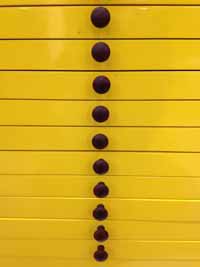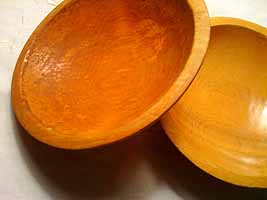Hierarchy
“I love Mama the most. Then my sister. Then Papa.”
I cringed to hear Buddy-roo‘s ranking, even though I came in first. Aren’t we supposed to love everyone in the family the same? Except I remember doing exactly the same measurement, when I was just about her age. My sister always got first billing, with my mother close behind. My father and brother alternated third and last place. It didn’t mean that I didn’t love them. But for some reason, I needed a hierarchy. Someone had to be on top.

I looked at Short-pants to see her reaction to being in second place. She seemed unfazed.
“I love everyone the same,” she said, filling in my supposed to box, except I think she really meant it.
“Wait,” Buddy-roo corrected her earlier pronouncement, “I love my sister first, because she always gives me my favorite chair.”
One of Short-pants’ household jobs is to set the dinner table, and she’s deliberate about making sure Buddy-roo is seated in her preferred chair, the one in which the caning was recently replaced. It’s lighter and smoother, unblemished. Sometimes the chairs get moved around as they get used for other things during the day, but Short-pants always looks for it and puts her sister’s favorite glass there, too.
Funny how setting the table becomes and act of generosity, or revenge. Someday, perhaps, Short-pants will be annoyed at her sister that she will withdraw her attention to detail and put her at any old chair, with any old glass. Or worse, she’ll deliberately set her sister’s place at the chair with the broken leg, the one we only use when the company at our table requires every chair around it. On those occasions it’s Buddy-roo who sits in the broken chair; we wouldn’t offer it to a guest and she is the lightest among our family. She takes one for the team, willingly. But how would she feel if it was designated to her because she was on the outs with the table-setter?
I know about this because I was once a designated table-setter. And I used to wield my power.
My mother had a set of salad bowls, I think they were a wedding gift. One of the little bowls had been left overnight in a sink full of water, damaging its finish. It looked as though it had leprosy. My mother always scolded us if we left a wooden utensil or bowl soaking in water – now I admonish my family for this too – all because of how it had ruined that one salad bowl.

Who knows how or why, but my sister and I started the practice of giving the “bad” bowl to whomever we were mad at. We shared the duty of setting the table, and relished this opportunity to express our displeasure at anyone in the family. If you got the bad salad bowl, you knew you were in the dog house. I’m not sure everyone else in the family fully understood the code, maybe my brother did. If we weren’t particularly angry with anyone, the bad bowl ended up on his placemat. He was the default recipient.
Years ago, at my grandmother’s memorial service, my cousin stood up before the congregated family and friends and talked about how she’d always felt that she was Grammy’s favorite. We all nodded when she added that she was certain that all the other grandchildren felt the same way. That woman had a very specific relationship with each of her nine grandchildren, and each one of us felt like the one she loved most.
“Which daughter do you love the most?” Buddy-roo asks this more frequently than Short-pants, but both of them have posed the question. My answer always a variation on the same theme of how they are different people so I love them in different ways, but that if you add it up, side-by-side it’s the same amount: infinity.
Or they’ll ask this: “Who do you love more, Papa or us?” Sometimes I’ll tease them, “I love Papa the most, on Tuesdays in months that have an R.”  But other times I tell the truth: “I had to love Papa first so that we could make you. I don’t love him more, but I’ve been loving him longer.”
But other times I tell the truth: “I had to love Papa first so that we could make you. I don’t love him more, but I’ve been loving him longer.”
I could spiral into worry about why they’re asking these questions, but I don’t. I think it’s a normal passage for their age. As they begin to see themselves as separate from their mother and father, there must be some assurances required along the way. And the proclamations, the hierarchy of who they love most, I think it’s natural, too. I hope they’ll outgrow it. But it makes me think about how important it is to help them feel the most loved, and yet loved the same as everyone else. I hope I can swing that one. I had good role models, which I think is what it takes.
And for the record, I love my brother the most, and just as much as I love everyone else.


February 5th, 2013 at 2:29 am
I started thinking about the other end of the chain (love/hate). Last year my father got seriously sick. I always thought he was the one that I love/hated/forgive the most. recently I learned to love parents in different way: the “thank you so much for accepting the tough job of being my father and all the Hierarchies I’ve been putting you through” way…
they will thank you some day!
February 5th, 2013 at 2:30 am
Intersting..I was divorced when my son was 18 mos old. For those months his dad did little to bond with him or me for that matter. Until two years ago, it was always just Jack and me…. I married again recently…jack is now 15…for most of his life it has been just he and I. I make no appologies…married or not I have always loved Jack the most. Perhaps this is the impediment to any blended family…for though I love my husband and I loved the first one…his dad…I never have loved anyone or anything like I love Jack. Maybe I loved…love him so deeply in a flawed attempt to love him somehow enough to make up for him not having his dad in his life in a more meaningful way. Maybe I simply have never trusted a grown up enough to love them the way I love Jack. Maybe as I have no siblings I never had to learn to spread and balance my love among many. The reasons I guess are less important than the fact that this untrusting heart was blessed with the love of a wonderful child
February 15th, 2013 at 6:31 am
I think my girl loves me more.
Funnily enough, I don’t remember ever having this conversation as a child.